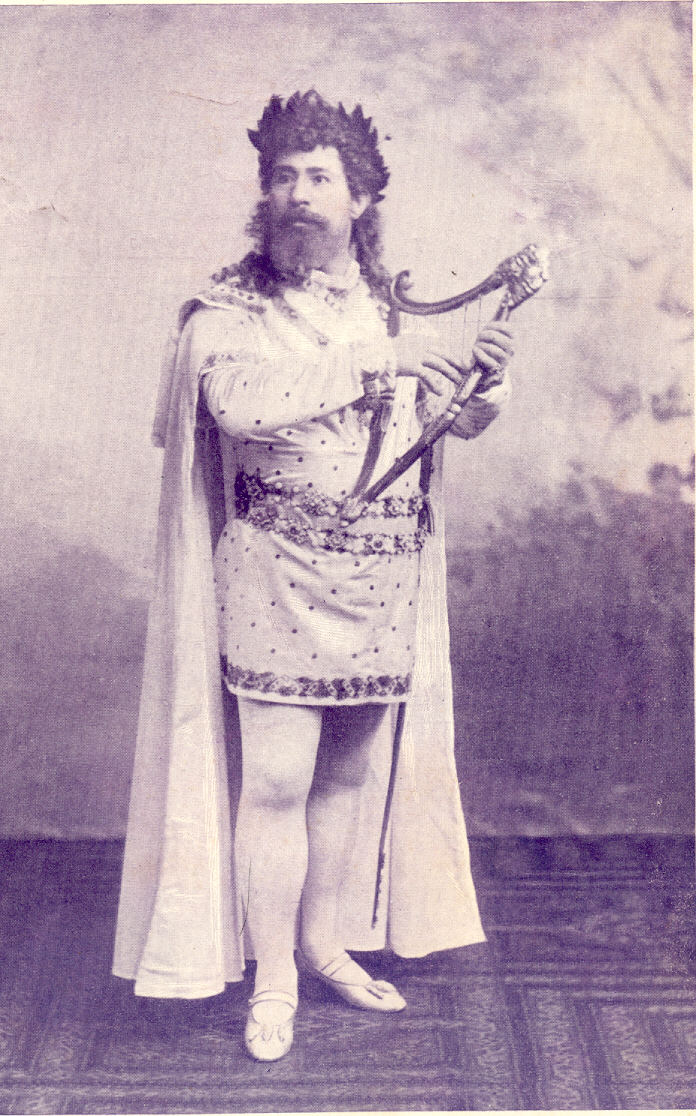Augusto Brogi
After 15 years as a baritone, he switched to tenor in 1887, and continued his career for another 15 years, on the same level of
prominence. However, it seems that his style went out of fashion towards the end of the 19th century, or perhaps his voice
declined: Giulio Ricordi, the famous editor of music, discouraged young Giacomo Puccini from hiring Brogi, and Arturo
Toscanini fired him from La Scala in 1898 after having criticized Brogi's singing, which led to a heated argument – Brogi
was not exactly shy or easy to deal with (and brought his dismissal from La Scala to court). After his career, he opened a
school of singing in Florence. That he had still a short temper is attested by an episode that occurred in Milano in 1903:
Brogi and his son went by tram, the son quarreled with the driver, and eventually Brogi himself bashed the tram driver with his
walking cane, and spent the night in police custody.
Of course, at the very end of his career, Brogi could have recorded, and obviously, tests were made. He was so dissatisfied
that he insisted all matrices be deleted, and declared "those who want to hear me have to come to the theater".
He was the uncle of Renato Brogi, the composer of the well-known song Visione veneziana.
Reference 1,
reference 2, reference 3, reference 4
Literature: Maurizio Sessa, Augusto Brogi. Il "baritono tenore" di Sesto Fiorentino (1847–1917), Sesto Fiorentino
2020 |
